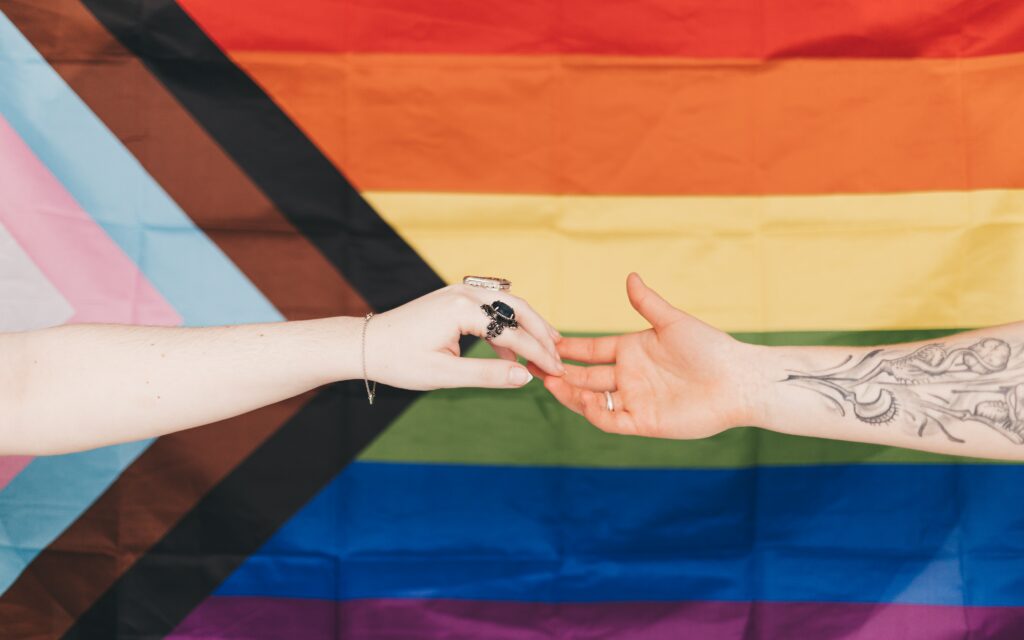 Subscribers Only
People
Subscribers Only
People 
The Bevan Foundation’s Housing Policy Officer Rob King looks at inequalities trans people in Wales face in housing.
Today is the International Day Against Homophobia, Transphobia and Biphobia. It is not the only day where we must challenge these bigotries, but rather a day to mark that to be truly against them is to challenge them year-round. As a non-binary trans person, I am privileged in my current position to be able to make these challenges from a platform such as this. As such, considering recent debate surrounding trans people’s validity and existence within the political landscape of the UK – a debate which is marred with misinformation and bigotry – this article is going to discuss the issues trans people face surrounding housing within Wales and the UK as a whole today. This does not mean to minimise the bigotry faced by cisgender LGBTQ+ people.
Recently as part of my role as Housing Policy Officer for the Bevan Foundation I was fortunate enough to talk to an LGBTQ+ youth group and hear some of their comments on how to improve their access to housing and challenge bigotries. Access to services can be difficult for trans people, and Wales is no exception to this.
Trans people in Wales face discrimination on both a personal and systematic level.
LGBTQ+ people are more at risk of homelessness than non-LGBTQ+ people, due to the risk of familial rejection and abuse. Trans people face similar levels of risk, with Shelter Cymru noting especially that trans people are particularly at risk of homelessness as a result of relationship breakdown and loss of employment related to coming out as trans, and as a result of abuse. A 2020 Galop survey of LGBTQ+ survivors of sexual assault found that 34.7% of trans men and 29.6% of trans women in Wales reported that their assailants ‘intended to convert’ or punish their LGBTQ+ identity.
The same report notes that LGBTQ+ people in general are particularly at risk of homelessness due to familial rejection, but trans people in particular are also faced with issues compounded by relationship breakdown and abuse, as well as loss of employment associated with coming out as trans. Shelter Cymru have reported that trans people in Wales can often be concerned about accessing homelessness support services, with much of the concern specifically regarding the suitability of temporary accommodation and fears that services would not recognise their gender identity.
Trans people who have been placed into temporary accommodation have reported being victims of sexual and transphobic violence, and reported that staff are often untrained in dealing with trans-specific issues. LGBTQ+ people – and trans people especially – face specific issues when looking for support. 14 per cent of LGBTQ+ people had been discriminated against when accessing social services – a number which rises to 24 per cent for disabled LGBTQ+ people.
There are also limited, bordering on no, provisions within homelessness support services for dealing with nonbinary identities, which leads to further isolation within the trans community. Trans people also face barriers when applying for social support services due to the difficulty of acquiring a gender recognition certificate (GRC). Trans people who have not yet acquired a GRC face questioning from social services and are sometimes forced to use their deadname or assigned gender at birth during applications – further isolating them from an already invasive process. Given this, it is unsurprising that every young person I spoke to at the LGBTQ+ group voiced their support for making GRCs more accessible and simplifying the process – a process which thus far has been pathologized and stigmatised. While this has been the subject of much debate recently it is an important part of creating a more equal Wales and it is praiseworthy that the Welsh Government has also stated support for simplifying the process of gender recognition in their LGBTQ+ Action Plan for Wales.
Wales’ only gender identity clinic, operated by the Welsh Gender Service, is located in Cardiff – meaning that trans people from further afield in Wales have to face long and costly journeys to access treatment. This is assuming they can receive treatment – there are long standing issues of getting referrals to gender clinics from local GPs.
A fair and equal Wales must include trans people and consider their needs.
Transphobia is currently being weaponised as a wedge issue and the real systemic inequalities that trans people face are being ignored. It is important for everyone who wants to build a more equal and just Wales to challenge this, not just today, but all year round.


